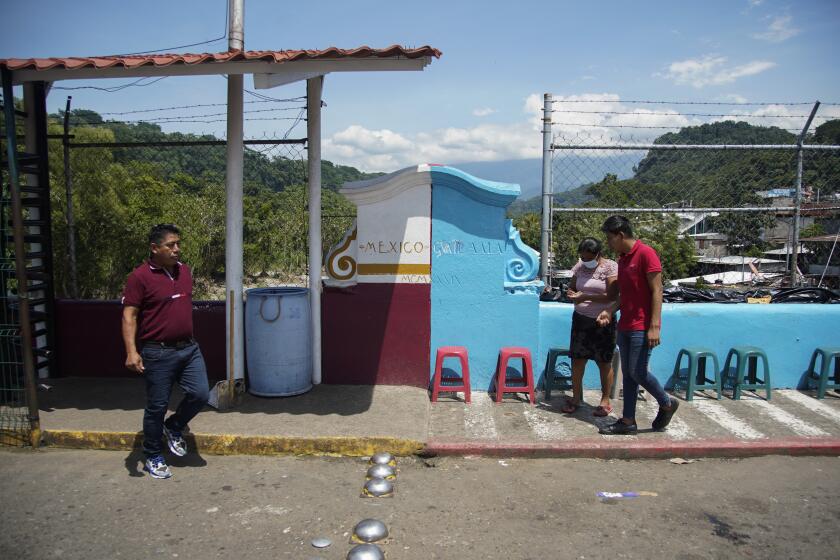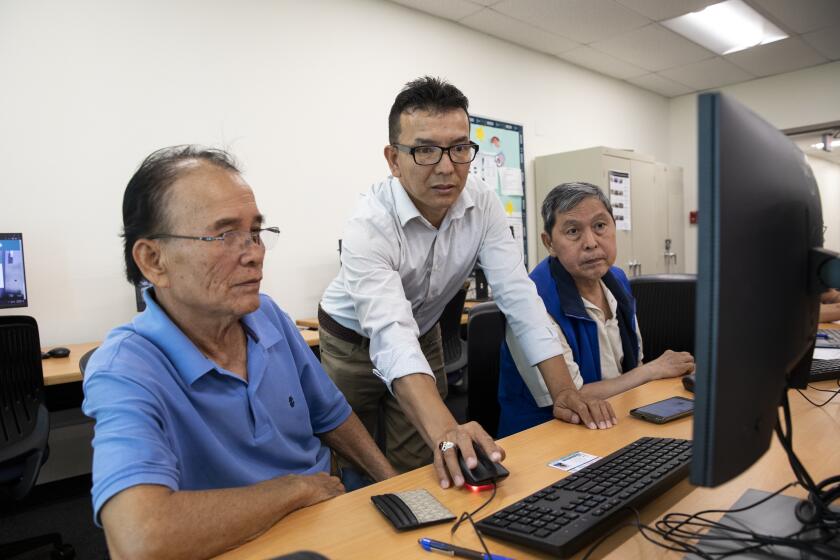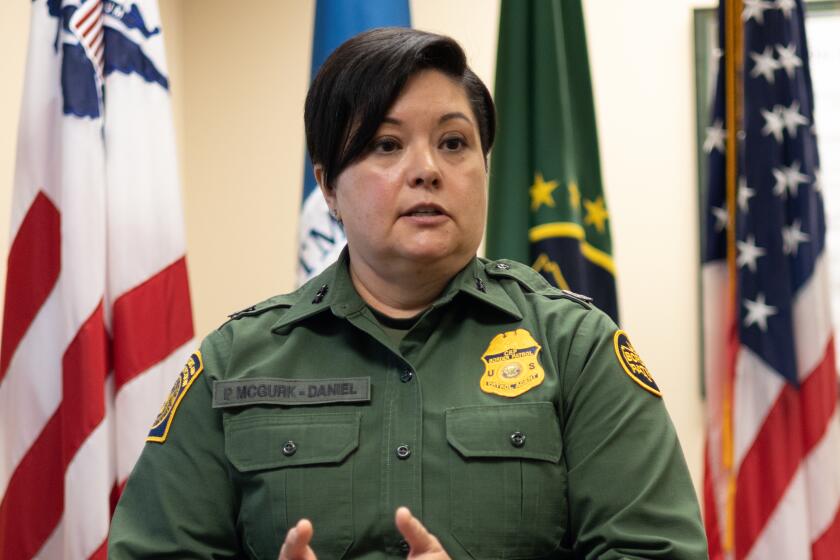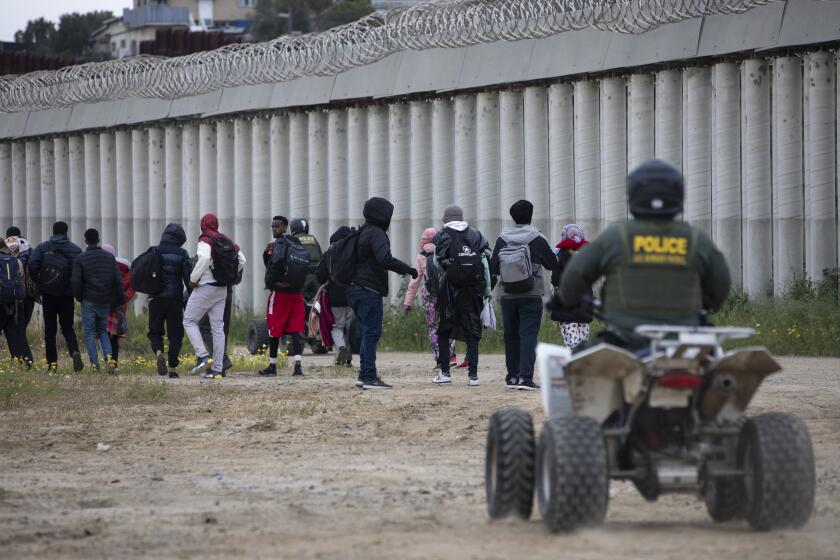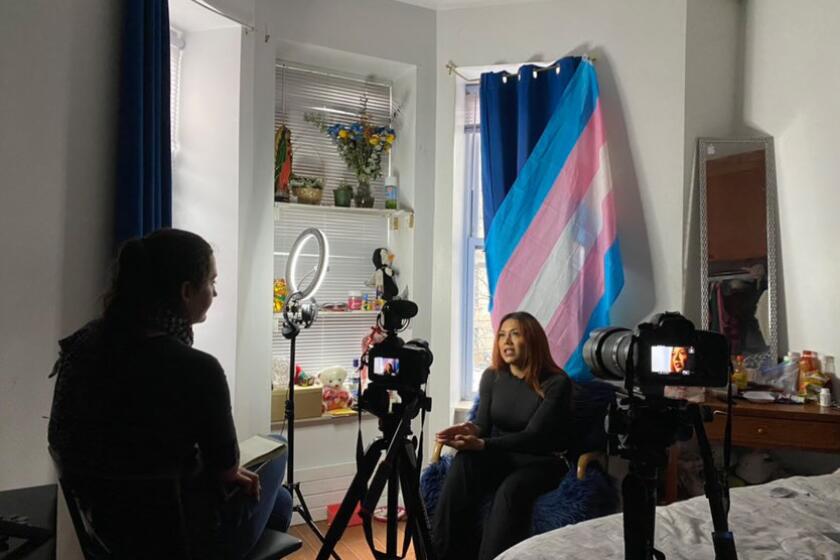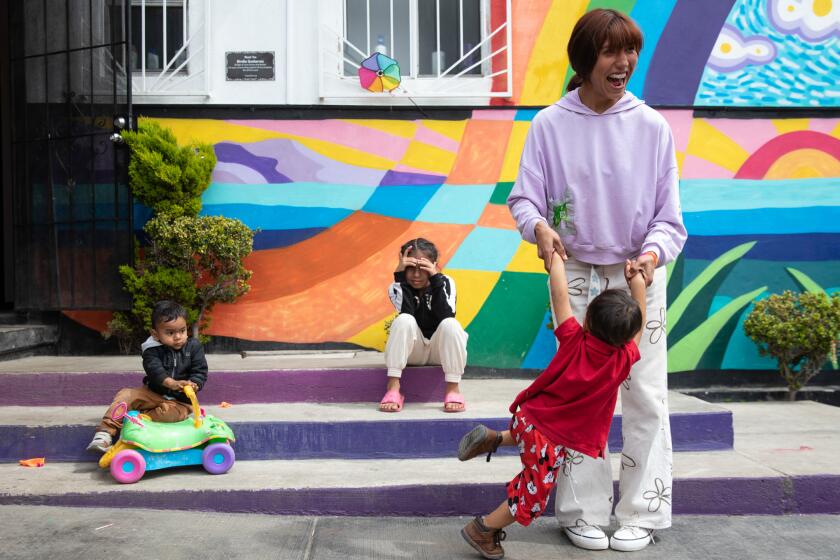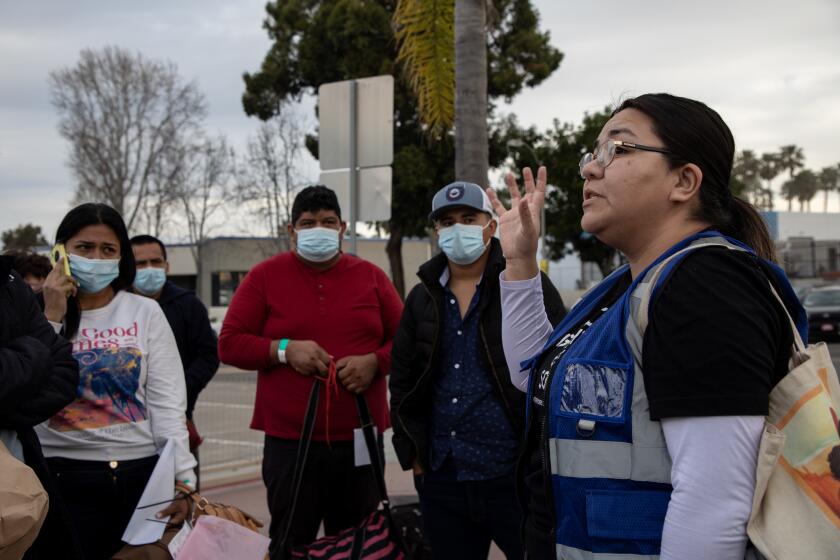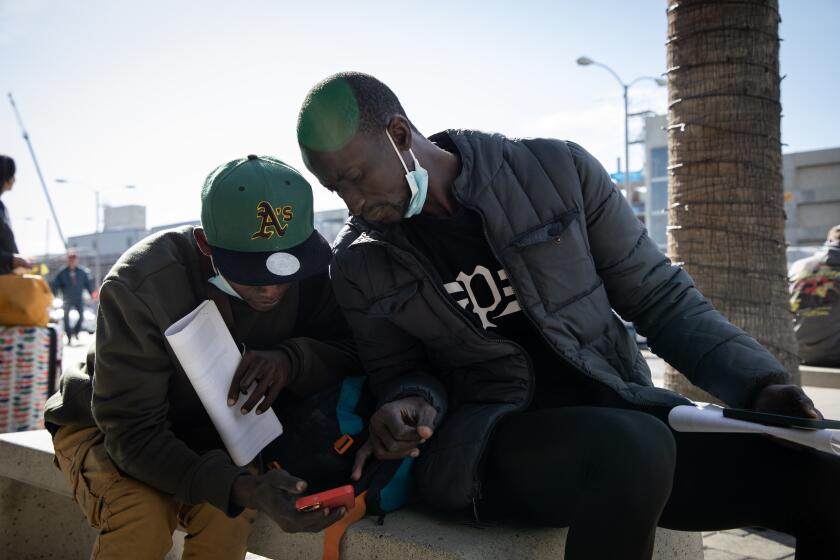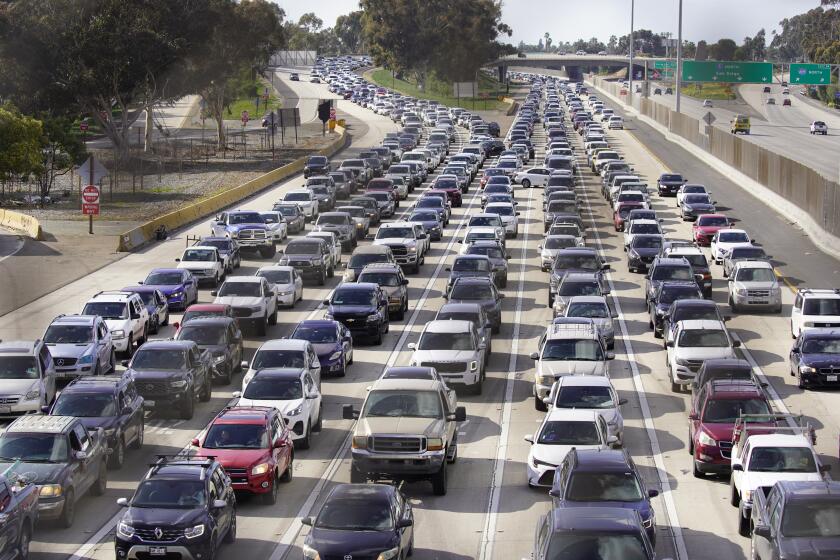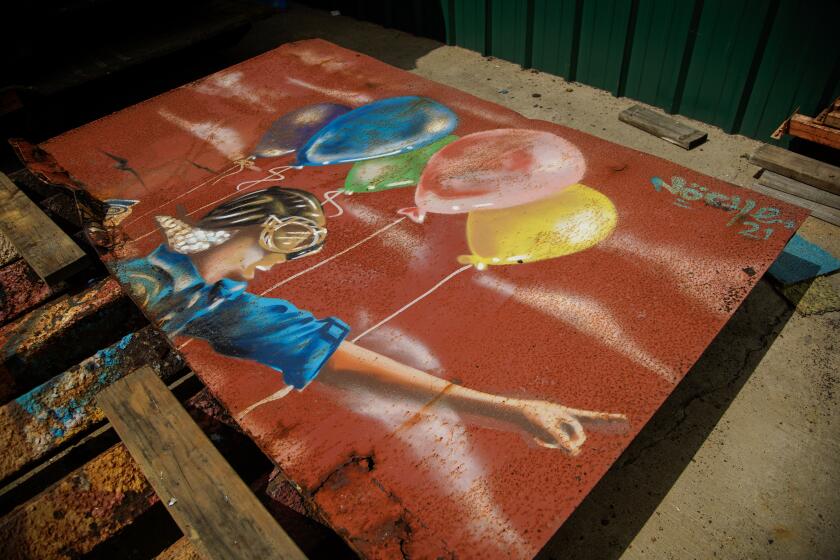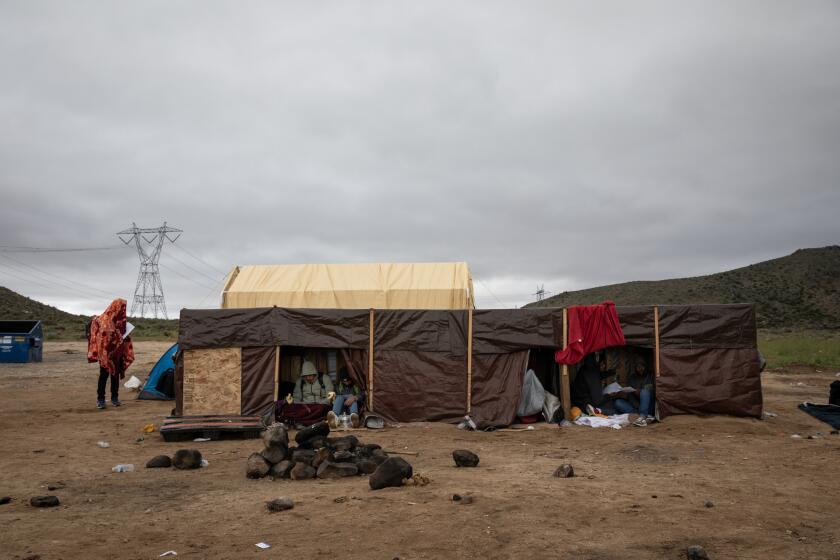Jamaican asylum seekers in Tijuana facing racism, homophobia while they wait
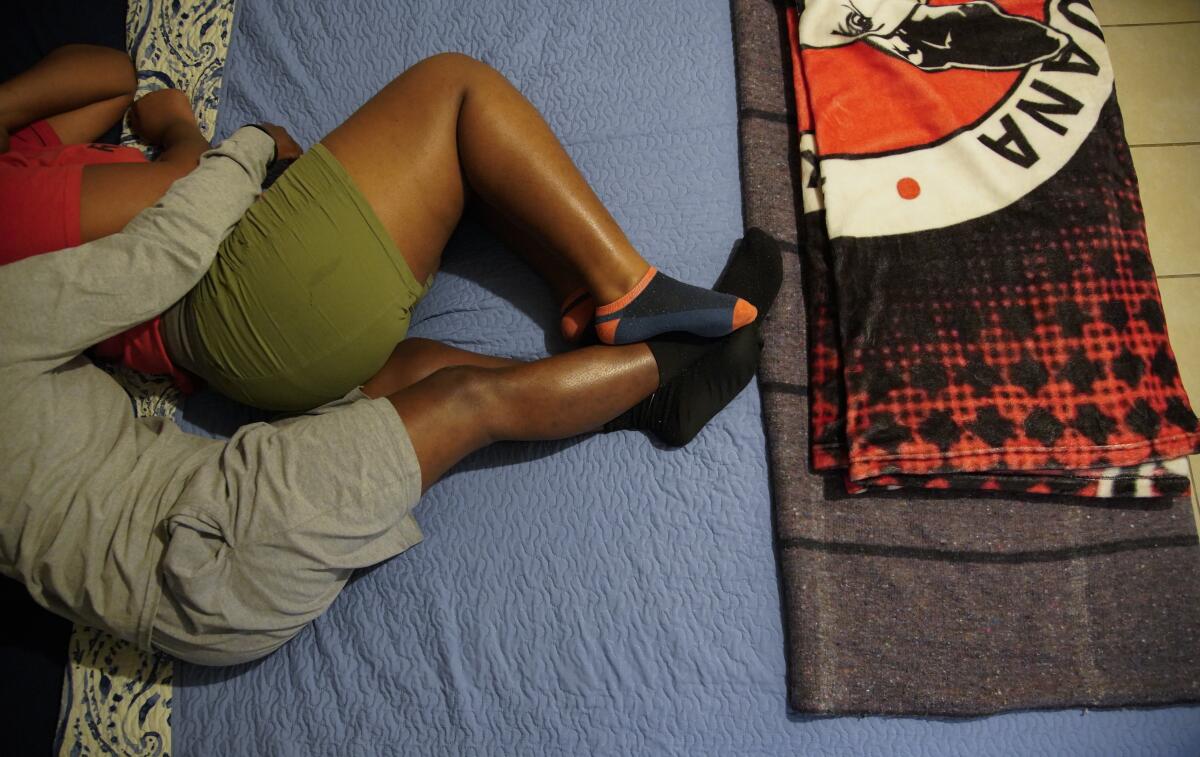
One couple said they have been harassed and not allowed into some local businesses
When a Jamaican couple recently went to a Tijuana laundromat, the woman in charge yelled at them and forced one woman to stand outside while the other did both of their laundry.
T and S, who asked to be identified by their initials because they are seeking asylum and are not yet safe, quickly noticed that no other customers were required to wait in the street. Though they don’t speak much Spanish, one word stuck out as the laundromat employee sneered at them while speaking to other customers: “lesbiana.” Then another word, “policía.”
“I kept saying to her, ‘We’re not doing anything. We’re not bothering anyone,’” T said.
“If looks could kill a person, I would be dead,” S added.
The incident is one of many that the two women have experienced while waiting in Tijuana for the United States to begin processing asylum cases at ports of entry. As Black lesbian migrants, some of those incidents are rooted in racism, others in homophobia, and still others in the intersection of the two.
An occasional series in which the Los Angeles Times and San Diego Union-Tribune explore Mexico’s role in migration and the conditions in that country that drive people north.
T and S are among a little more than 30 Jamaicans who identify as part of the LGBTQ+ community currently waiting in shelters, hotels and Airbnb rentals around the border city, according to Emem Maurus, an attorney with Transgender Law Center’s Border Butterflies Coalition. They were forced to flee their home country because of the intense discrimination and danger they faced for their sexual orientations or gender identities.
Conditions in Tijuana for asylum seekers are difficult, and they are especially so for Jamaicans like T and S, Maurus said. Jamaicans are stopped by the Mexican National Guard, denied entry to stores and randomly detained by local police. Some are sick and can’t access medical care.
The U.S. government completely closed the intake of asylum seekers at ports of entry at the beginning of the pandemic. It has never reopened.
Some managed to get into the United States over the summer when a temporary program that grew out of lawsuit negotiations allowed people to apply for exemptions to this pandemic-era policy, known as Title 42. But those now in Tijuana are facing an indefinite wait.
With hopes fading that the Biden administration will ultimately keep its promise to create a humane asylum system, some asylum seekers have given up on waiting and snuck into the United States. Those who do risk being expelled to Mexico or their home countries under Title 42 without access to asylum screenings if they are caught.
Calculating the risk of crossing onto U.S. soil without permission is only growing more complicated as the Biden administration moves to reimplement the “Remain in Mexico” program, a policy created under the Trump administration that required certain asylum seekers to wait in Mexico while their U.S. immigration court cases unfold. The program has restarted in Texas, but it has not yet come to the California border.
Though the Trump administration’s version of the policy included asylum seekers from Spanish-speaking countries as well as Brazil, the Biden administration’s rules indicate that anyone from a country in the western hemisphere could be returned — even potentially Jamaicans.
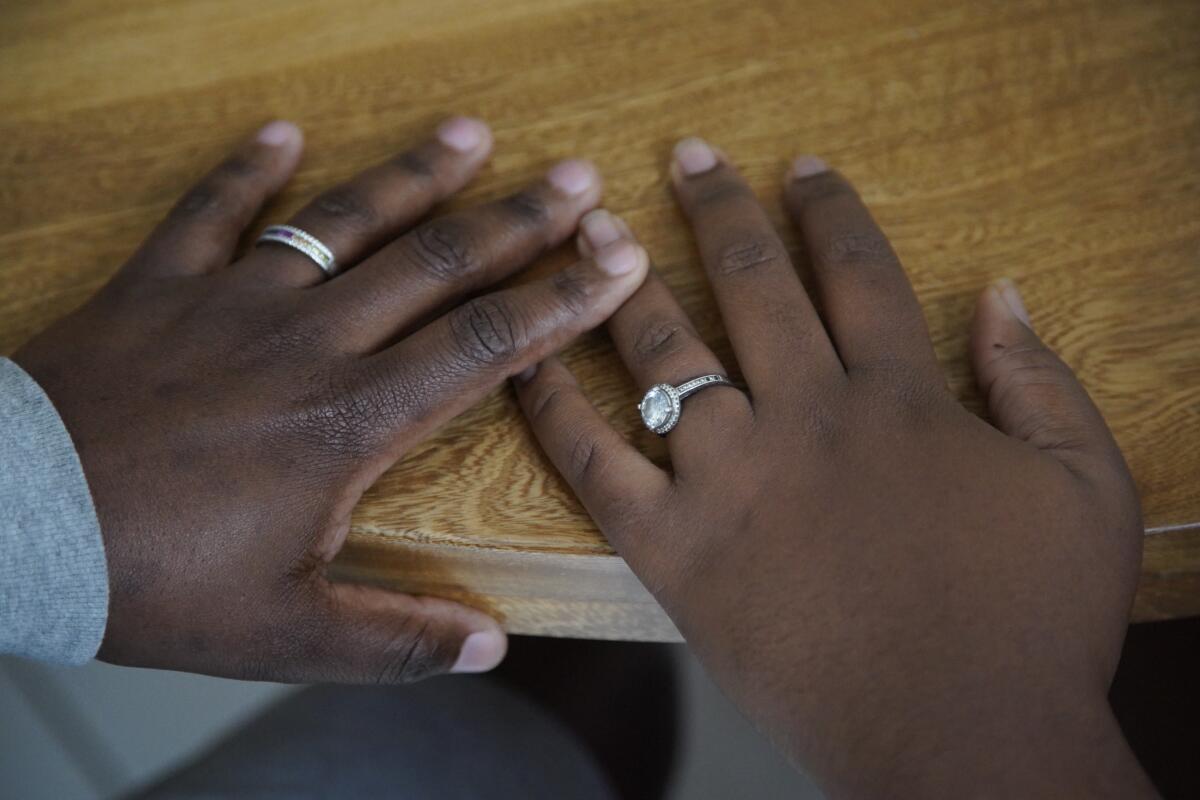
T and S don’t want to cross without permission because they know the journey itself is dangerous, and they fear the possibility of being expelled to Jamaica. The risk doesn’t seem worth it to them.
The young couple are holding out for responses to their applications for humanitarian parole, a program that allows the federal government to approve temporary entry into the United States because of extreme circumstances, such as a serious medical condition that is untreatable in Mexico.
Once inside the United States, parolees can go through other processes to request protection and stay in the country. U.S. asylum law allows for people to request protection based on persecution because of gender identity or sexual orientation.
But Customs and Border Protection has left many parole applications unanswered for months, as detailed in a complaint sent to the Department of Homeland Security Office of the Inspector General earlier this year.
CBP did not respond to a request for comment about parole processing.
“If we go back to Jamaica, we will have to start all over again and might not make it out,” T said. “We will be in harm’s way.”
She didn’t think they would be able to afford the journey a second time. They secretly saved up for about a year to be able to make the trip. They had to be sure of their decision to leave because of the cost, T said.
Their final push to leave came after a security guard pulled a gun on them.
“We’ve had people tell us if we were their daughters, they would kill us,” T said. “It’s gross some of the things they say. It’s traumatizing.”
The couple said that as lesbians in Jamaica, they had a hard time getting or keeping jobs and housing.
When they went to police to report hate crimes against them, the police did nothing.
“He asked me why don’t I dress different,” S recalled of one such encounter with police. “He said, ‘If you dress different or date a few men, you won’t get as much attention.’”
When they left, they followed advice from a friend, a gay man from Jamaica who had already made the trip. They flew from Jamaica to Cancún, then to Mexico City and finally Tijuana. He told them about an LGBTQ-friendly shelter where they could stay once they reached the border.
They had to spend a few days in each city en route so that they would look like tourists. Jamaicans visiting Mexico aren’t required to have visas, but if they show signs of intending to request asylum in the United States, Mexican immigration officials will try to stop them before they reach Tijuana.
And though S wore more stereotypically feminine clothing than she usually does, the two were stopped along the way, they said. It has only gotten more difficult for migrants who identify as part of the LGBTQ+ community to get past Mexican officials in more recent months, Maurus said.
They knew they wouldn’t be able to enter the United States right away, but they didn’t realize it would take so long. They’ve already been in Tijuana for five months, long enough to celebrate both of their birthdays.
Their parole request has been pending for much of that time.
While in Tijuana, they found that they were often mistaken for Haitians when they went out for errands. Sometimes, after they showed that they spoke English, they could convince the person discriminating against them that they were Americans and get better treatment, they said.
Still, they were blocked from shopping in certain stores and security followed them around others. A hair salon made them stand outside to wait for their friend, but they saw another group their size go in and wait without issue.
“White, brown, they let them in,” T said, “not our complexion.”
Though they were used to homophobic treatment in Jamaica, the anti-Black racism was a newer experience for them. They only left the shelter when they had to.
But even there, racism made life more difficult, they said. T and S struggled to feel comfortable at the shelter because they felt judged by others staying there. They spent most of their time in their room to avoid conflict, but even there they lacked privacy. They shared that room with five other people.
Then one day, after the couple had an argument, the shelter told them to leave.
The other Jamaicans at the shelter left with them, believing they would be the next to be kicked out.
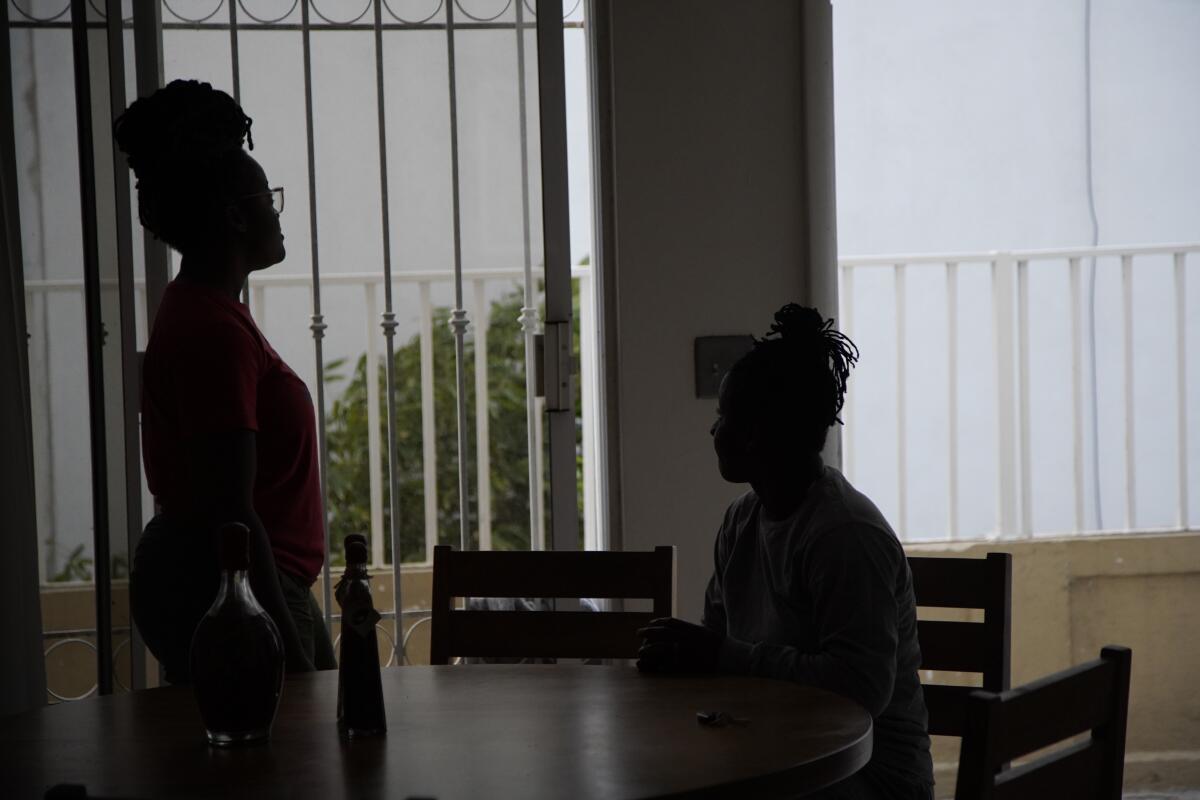
A coalition that Maurus is connected to has since been renting Airbnb homes for the group of Jamaicans. The one they’re in now has a washing machine and dryer, so they don’t have to deal with the laundromat anymore.
Two Jamaicans they knew had their parole requests approved and were able to reach U.S. soil last month, T and S said.
Once in the United States, the couple’s dream is to get married. They have already been together for three years and are engaged.
Beyond that, they want to find a way to help others in situations like theirs.
“I’m passionate about ensuring that people know they’re not alone,” T said.
Neither has illusions about the United States as a perfect place, but they believe they will be safer there than in Jamaica or Tijuana. They know they are likely to encounter racism and homophobia in the U.S. as well, and they’ve been researching which cities might be the friendliest to them.
“Even with its issues, it still seems like the better option,” T said. “Racism is something you can’t avoid.”
Get Essential San Diego, weekday mornings
Get top headlines from the Union-Tribune in your inbox weekday mornings, including top news, local, sports, business, entertainment and opinion.
You may occasionally receive promotional content from the San Diego Union-Tribune.
